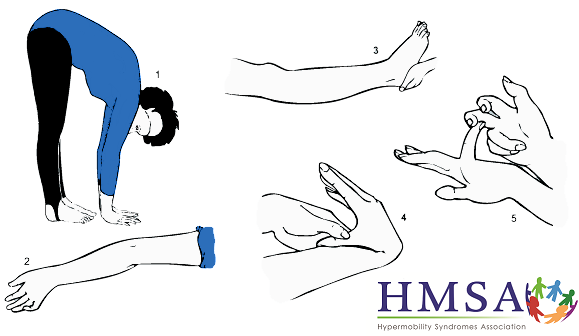|
Many people know what it’s like to have a loose joint. Maybe you even considered yourself ‘double jointed’ when you were in primary school. But hypermobility is something that can be benign, or it can be a serious concern in some cases. So let’s look at hypermobility and how you can support a loose joint naturally. What is hypermobility?
Hypermobility is when a joint has a greater range of movement than usual. This can be caused by a handful of factors, including:
Is hypermobility a bad thing? Not always. Some people can actually train their joints to become hypermobile over time – think people who do gymnastics or calisthenics. This isn’t a problem, as long as the joint isn’t damaged and the muscles are strong enough to prevent the joint from slipping out. There are also people that have one or more hypermobile joints, but don’t have any problems as a direct result. This is generally described as benign hypermobility. But it can be problematic for some people. Sometimes, it’s a short-term problem – like if you dislocate a shoulder during football. This will mean you need to nurse the joint back to normal mobility to prevent further injury. Sometimes, hypermobility is part of a bigger concern. There are conditions that present with hypermobile joints, including most forms of Ehlers-Danlos Syndrome and Marfan Syndrome. Sometimes, hypermobile joints that become problematic are the first clue that there is an underlying issue. Tips to support a hypermobile body part If you have some hypermobility and it’s not causing you any issues, you might be just fine. But if your joint is causing you pain, is unstable or affecting your life in any way, here are some tips to support it back to health. Keep exercising within your limitations The body thrives off movement, and it boosts blood flow throughout, which is needed for healing. If you have an injured body part, do any kind of exercise that doesn’t cause pain or discomfort. For example, if your shoulder is the issue, go for a daily walk still. If it’s an ankle, keep doing upper body work at the gym that doesn’t require standing. Remember, if you’re not sure how to exercise safely due to injury, the best course of action is to consult a myotherapist who can assess the situation for you. Use taping and other tools to increase proprioception One issue that is common with hypermobile joints is a loss of proprioception. Proprioception is where your brain thinks your joint is. If you lose proprioception, your body can start to think that the correct position for your joint is partially dislocated, or subluxed. A good tool to use to increase proprioception is taping. By taping a joint, you can stabilise the joint when it is very unstable. Once the joint improves, kinesiotape can help to increase your awareness, or proprioception, of the joint. In the clinic, I offer both rigid and kinesio taping services. In fact, return clients can book in a follow-up taping session, so we can re-tape a loose joint until it regains stability. To book a taping session, contact me directly. If your joint is particularly loose, you can also consider tools like splints, supports or orthotics to help with proprioception. These are most useful for highly unstable joints, or for times when you can’t focus solely on where a joint is. Not sure which tool is best for you? Ask your friendly myotherapist. Be cautious with stretching and yoga Stretching and yoga can have oodles of benefits. But if a joint is already stretched out of place, the wrong stretches or yoga poses can exacerbate the situation. Just because you can move into an extreme stretch doesn't always mean you should - often the safest option is to stop short of your absolute maximum stretch, because here you'll have the most control over your movement. Control at our very end range of movement can be difficult, and if your joints are prone to dislocation and instability due to loose or unreliable ligaments then ideally you should be aiming for a stretch where you can still keep excellent muscle control over the joint. If you’re not sure what is safe to do, have a chat to your practitioner or yoga teacher. Work with a hypermobile-literate myotherapist If your body is sore, a massage therapist can relieve some pain. But if you want to get the injury rehabilitated, you want to work with a myotherapist who is familiar with hypermobility. With myotherapy, we can not only give immediate relief using massage and other treatment techniques, but also put together a personalised treatment plan. A hypermobility management plan will include targeted strength and proprioception exercises. By rebuilding the muscles and teaching your joint where it should sit, you can get back on track. I’ve had the opportunity to work with many people who have hypermobility – both short-term and chronic. So whether you have a loose joint post-injury or a condition like Ehlers-Danlos Syndrome, I’m happy to help. Click here to book in an appointment. Comments are closed.
|
Meet Our Team
We have a team of great practitioners available 7 days a week at our Rowville clinic. Archives
July 2024
Categories
All
|
Got a question about Myotherapy?
Contact Mel by phone, email or Facebook
|
Simple Wellness Myotherapy & Remedial Massage Clinic
Shop 12B 150 Kelletts Rd Rowville VIC 3178 |
Phone us on
03 8204 0970 |


 RSS Feed
RSS Feed